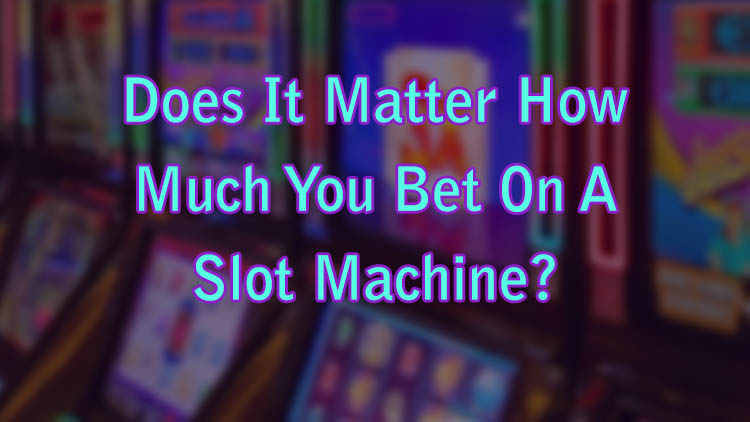
When it comes to the world of casino gambling, slot machines undoubtedly hold a prominent place due to their simplicity and entertainment value. A common query that often arises among players is whether the amount of money you wager on a slot machine influences your winning odds.
This blog post seeks to shed light on this topic and debunk some common misconceptions.
Do Slot Machines Know How Much Money You've Put In?
To start with, let's address the question of whether slot machines are aware of the amount of money that you've put in. The unambiguous answer is yes, slot machines do know how much money you've put in. They are equipped with modern technology and sophisticated algorithms that allow them to track the money being fed into them. This information is crucial as it enables the machine to calculate the correct payout amount should a player score a win.
However, it's essential to understand that the money deposited into the slot machine doesn't impact the game's outcomes or potential payouts. The machine only uses this information to calculate the winnings based on a player's stakes, thereby ensuring fair payouts across the board.
Does The Amount You Put In A Slot Machine Matter?
Many players labour under the misconception that the more money they put into a slot machine, the higher their chances of winning. Unfortunately, this notion is far from the truth.
Slot machines operate on a system known as the Random Number Generator (RNG). This complex mathematical algorithm generates random number sequences, resulting in unpredictable and random outcomes on each spin. The RNG is not influenced by the amount of money you put into the machine. Instead, it ensures that each spin is an independent event, each with the same odds of resulting in a win as the next and last, which remains constant regardless of the bet size.
In essence, this means that whether you place a £1 bet or a £10 bet, your odds of winning remain the same. The game doesn't take into account how much money has been put in other than for the purpose of calculating payouts.
How Do Slot Machines Determine Payout?
All slot machines have a Return To Player (RTP) rate, which is an indicator of the amount of money a slot takes in that it pays back out as winnings. It is an average taken from a large sample of spins over a long period, and due to slots being so random, it is just a theoretical value. Players may win more or less than the stated RTP rate, or they may win nothing at all.
Here's an example: if a slot machine has an RTP percentage of 95%, it implies that in the long run, the machine averages out as paying out £95 for every £100 wagered.
This payout percentage is programmed into the machine's software by the casino or the slot machine manufacturer. However, it's crucial to understand that this is an average figure taken from millions of spins, and individual gaming sessions may not necessarily reflect this average.
Slot machines utilise the RNG to determine the outcomes of each spin. The RNG constantly generates random number sequences, even when the machine isn't in use. When a player hits the spin button, the RNG stops on a specific sequence, which corresponds to the combination of symbols that appear on the screen.
How Much Money Should You Bet On Slots?
The amount of money you should bet on slots is a subjective matter and largely depends on personal preference. Since your odds of winning remain the same regardless of the bet size, it boils down to how much you're comfortable betting.
It's vital to gamble responsibly and set a budget to avoid overspending. Only bet money that you're comfortable losing. Remember, the primary purpose of playing slot games should be entertainment, not making a quick profit.
So, while the bet amount doesn't affect the odds, it does affect how much you could potentially win. The payouts are proportional to the bet amount.
Also, some slot machines feature progressive jackpots, which may require you to place the maximum bet amount in order to have a chance to trigger the jackpot. However, this can vary from one progressive jackpot to another, so be sure to read through the game's rules and terms and conditions before placing any bets.
In conclusion, the amount of money you bet on a slot machine doesn't affect your odds of winning. Always remember that slot games are random, and winning is never guaranteed. Therefore, the most important thing is to set a budget and stick to it.
